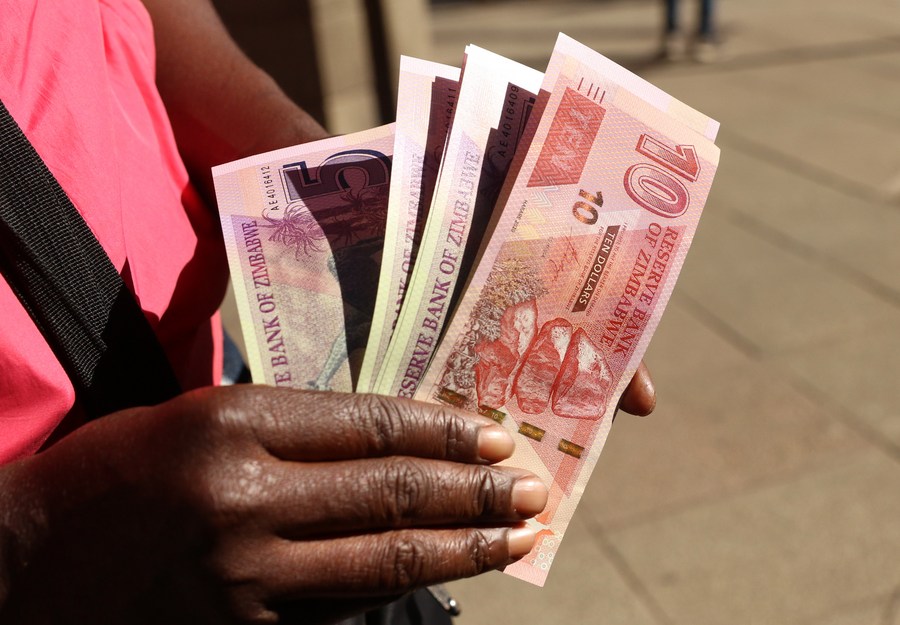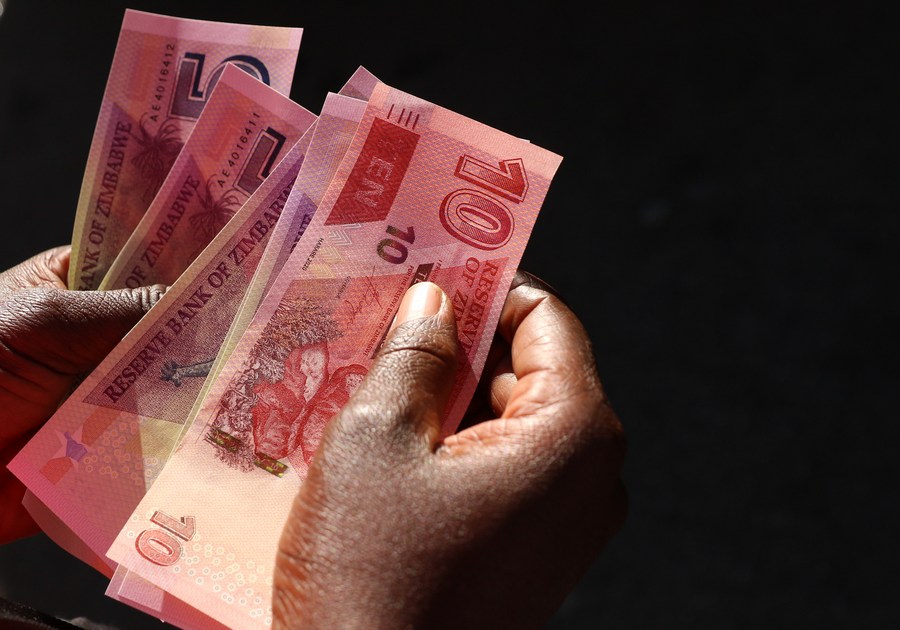
A customer counts banknotes withdrawn from a bank in Harare, Zimbabwe, on May 20, 2020. (Xinhua/Shaun Jusa)
As Zimbabwe slowly re-dollarizes, informal businesses in the country are increasingly refusing to accept payment of goods in local currency which has sharply devalued in recent months.
By Tafara Mugwara
HARARE, July 9 (Xinhua) -- As Zimbabwe slowly re-dollarizes, informal businesses in the country are increasingly refusing to accept payment of goods in local currency.
Many traders who still accept the local dollar are charging exorbitant prices while offering discounts for those paying in U.S. dollars.
Zimbabwe is currently grappling with escalating inflation that has seen a surge in the prices of most basic commodities.
In 2019, the country outlawed the domestic use of foreign currency and introduced the Zimbabwe dollar that had been dropped a decade earlier after the country experienced historical levels of hyperinflation.
However, over the past months, the newly introduced currency has been rapidly depreciating against the U.S. dollar.
Year-on-year inflation rate for the month of May stood at 785 percent, rendering salaries worthless.
Government recently legalized trading in U.S. dollars, a move that has exacerbated the hardship experienced by Zimbabweans, most of whom do not have access to foreign currency.
With the local currency rapidly losing purchasing power, government employees have been demanding U.S. dollar-denominated remunerations.
The civil servants representative council, Apex Council, recently told state-run Sunday Mail newspaper that the legalization of trading in U.S. dollars by the central bank last month means the government should pay salaries in the same currency.
Their sentiments were echoed by the Zimbabwe Senior Hospital Doctors Association, which implored the government to pay civil servants in U.S. dollars since the greenback has become the favorable mode of payment.

A customer counts banknotes withdrawn from a bank in Harare, Zimbabwe, on May 20, 2020. (Xinhua/Shaun Jusa)
"The U.S. dollar is now the only sensible medium of exchange. Forget any other name in the once-so-called basket of currencies. Payment of workers other than in U.S. dollars is cruelty. Everything in shops is pegged to the U.S. dollar now," the association said in a statement on its official twitter account.
The Amalgamated Rural Teachers of Zimbabwe (ARTUZ) on Tuesday said the government should consider paying teachers in foreign currency since their Zimbabwe dollar denominated wages have fallen far below the poverty datum line.
"The 50 percent increment received by teachers today is a mockery to our profession. Cost of living in Zimbabwe is 44.9 percent higher than in South Africa but we earn 5 percent of the salary of a South African teacher," ARTUZ said on its official twitter handle.
Last month the government raised salaries of its workers by 50 percent in a bid to cushion them from rapid price increase.
However, the galloping inflation means many government employees still struggle to earn a decent living.
Zimbabwe's largest nurses union, the Zimbabwe Nurses Association (ZINA) last week called on its members to down their tools until the government address their concerns.
"The reality which any reasonable person will accept is that we are incapacitated from attending work even if we wanted to.
"The $3,000 (45 U.S. dollars) average salary we earn is not sufficient to cover basic needs without even adding the costs required to attend work," ZINA said in a statement. ■



